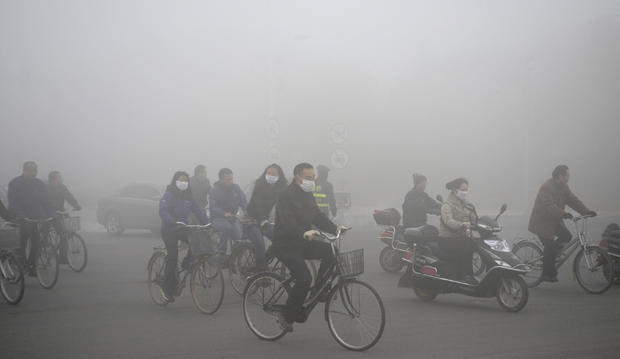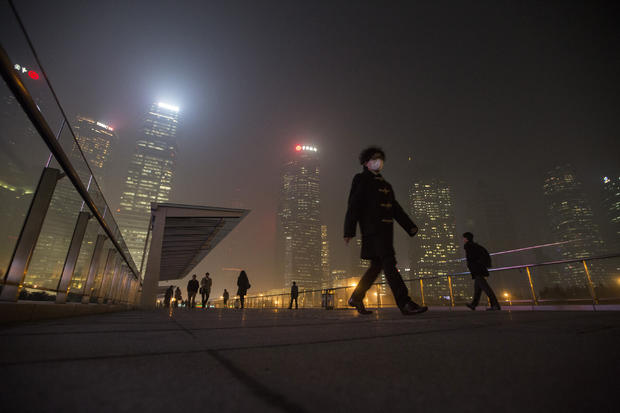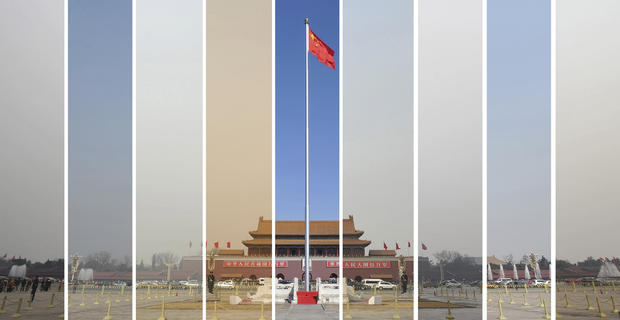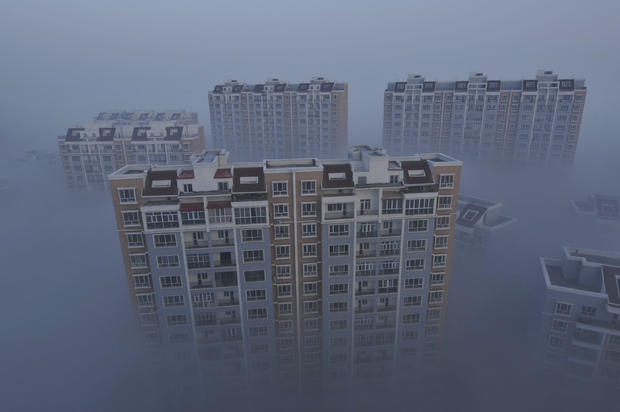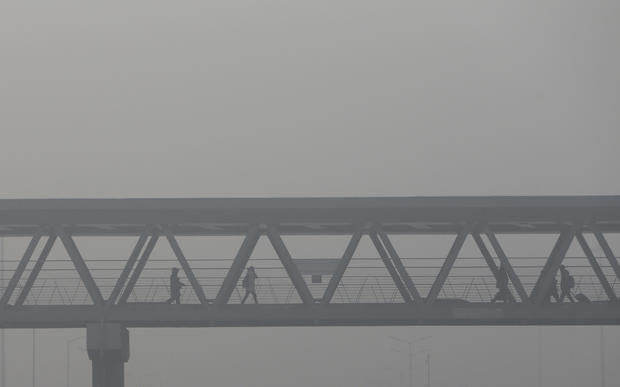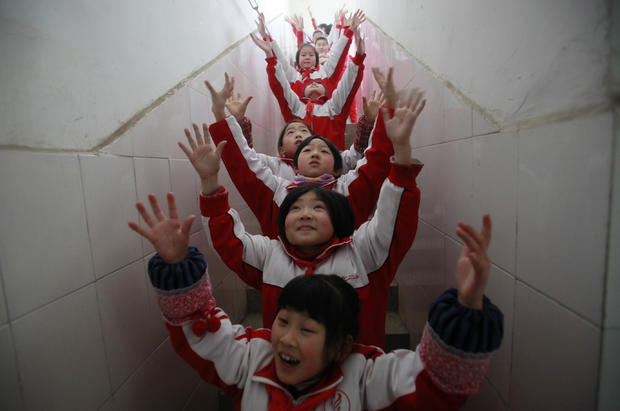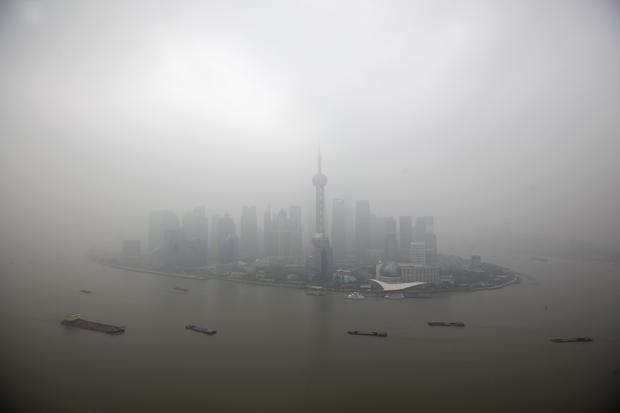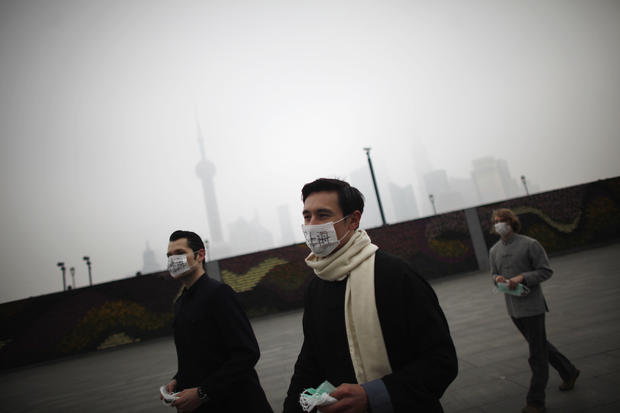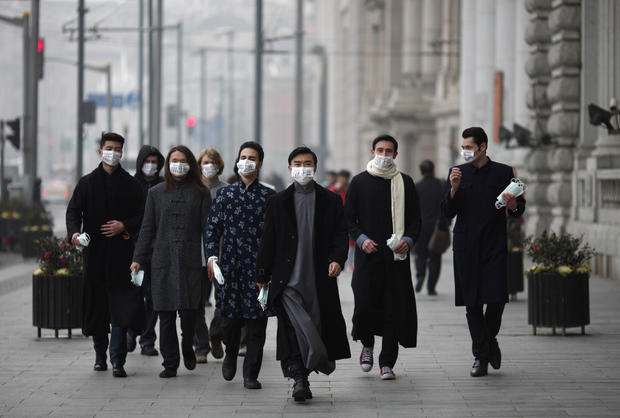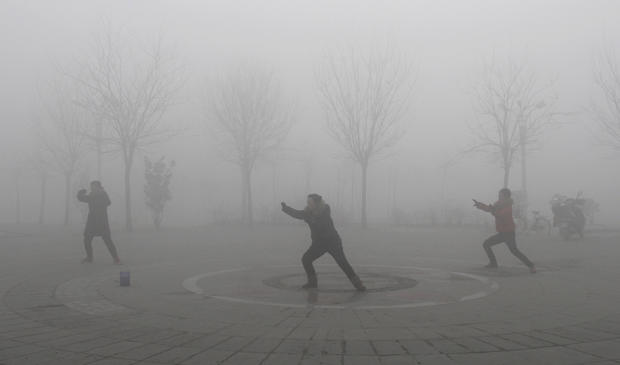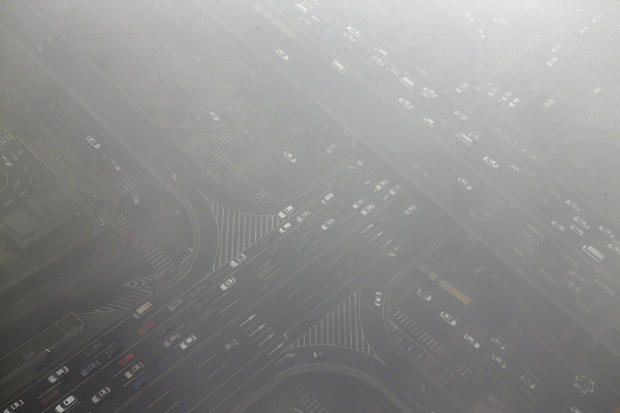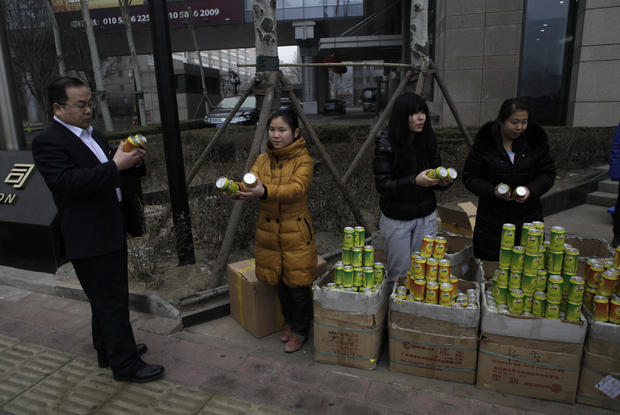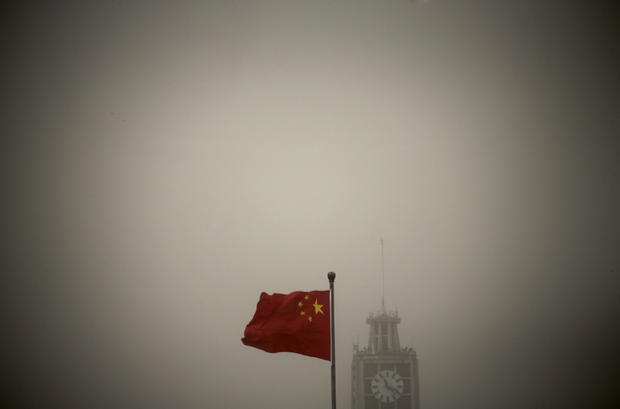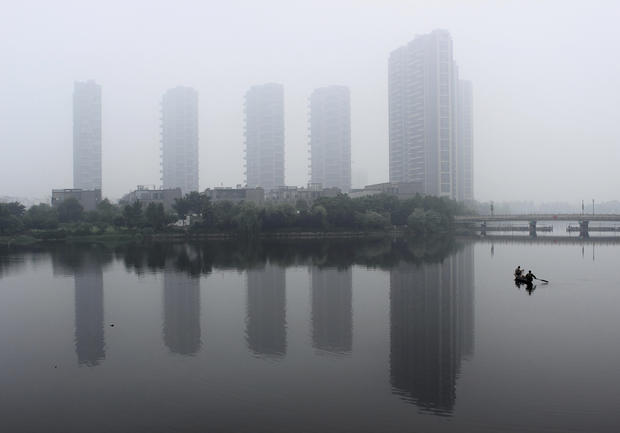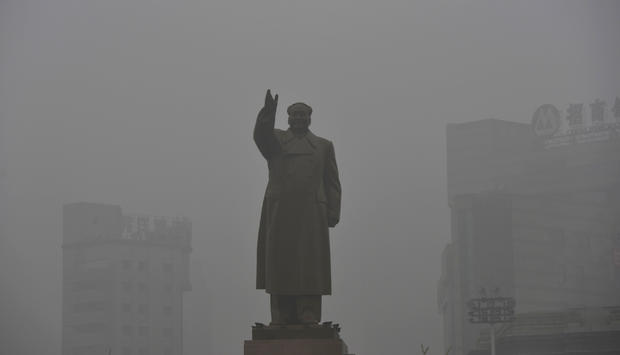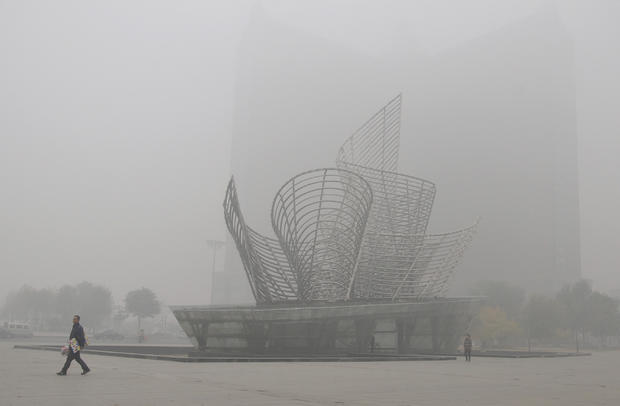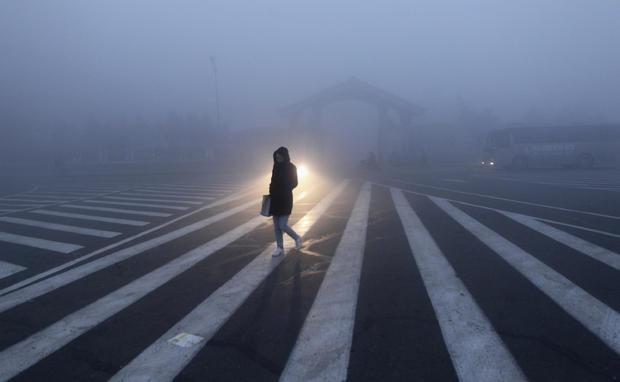China's smog problem
People ride along a street on a smoggy day in Daqing, Heilongjiang province Oct. 21, 2013.
Chinese aviation authorities will soon require captains of domestic flights into Beijing to master low-visibility landings to combat chronic flight delays that have been worsened by heavy smog.
Thick smog has canceled or delayed flights at the Beijing airport when the city's visibility goes down to a few hundred yards - though officials typically blame the delays on weather conditions rather than pollution.
Read more: China to make pilots learn how to land in Beijing smog in effort to reduce flight delays
Shanghai
A man wears a mask while walking on a bridge during a hazy night in Shanghai's financial district of Pudong Dec. 5, 2013.
Hazardous air pollution forced schools to shut or suspend outdoor activities in at least two cities in eastern China, where residents complained of the yellow skies and foul smells that are symptomatic of the country's crippling smog crisis.
Nanjing suspended classes in primary and secondary schools and Qingdao banned outdoor activities, said the official Xinhua news agency.
Beijing
The air pollution levels in the sky over Tiananmen Square during the National People's Congress in Beijing are seen in this combination picture taken on the dates, from left, March 6, 7, 8, 9, 10, 11, 12, 14 and 15 in 2013.
Chinese Premier Li Keqiang pledged on March 17, 2013, that his government would "show even greater resolve" in tackling China's festering pollution crisis, a source of increasing public fury. Air quality in Beijing has mostly stayed above "very unhealthy" and "hazardous" levels since the beginning of 2013.
Beijing
Harbin
Xinjiang
Beijing
People walk through a pedestrian bridge on a heavy haze day in Beijing Jan. 12, 2013.
Air quality in Beijing was the "worst on record" according to environmentalists as the city's pollution monitoring center warned residents to stay indoors with pollution 30-45 times above recommended safety levels.
Jinan
Shanghai
Shanghai
Shanghai
Jiaozuo
Beijing
Cars drive through Guomao bridge on a heavy hazy day during winter in Beijing's central business district Jan. 30, 2013.
Beijing temporarily shut down 103 heavily polluting factories and took 30 percent of government vehicles off roads to combat dangerously high air pollution, state media reported, but the city's air remained hazardous despite the measures.
Beijing
Employees of Chinese multimillionaire Chen Guangbiao's company give away cans of fresh air to a man near a street on a hazy day in central Beijing Jan. 30, 2013.
China's foulest fortnight for air pollution in memory has rekindled a tongue-in-cheek campaign by a Chinese multimillionaire with a streak of showmanship who is raising the alarm by selling canned fresh air.
Chen Guangbiao, who made his fortune in the recycling business and is a high-profile philanthropist, handed out soda-size cans of air, purportedly from far-flung and pristine regions of China, from Xinjiang in the far northwest to Taiwan off China's southeast coast.
